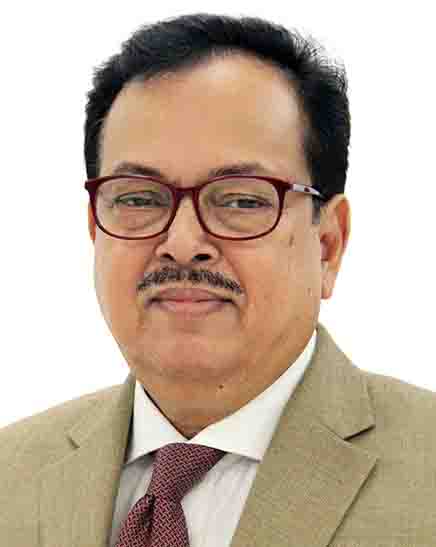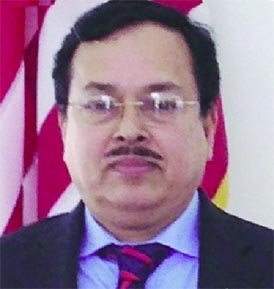Ethics and ethos of journalism


Journalism is not a great profession but it has great risk and responsibility. Journalism has unlimited areas to cover but a journalist has limitations. Journalists have no right and responsibility to punish someone but it was a fact that the US president Richard Nixon, the mightiest man on earth in his time, lost his job because of journalists.
It has been proved that though journalists have no assigned power, sometimes unlimited power is applied with the work of a journalist. So journalists have to think twice and check and cross check the information they get from their sources. A judge always allows the accused to defend. Similarly, a journalist has to incorporate the opinion of the accused person in the story. Making a false, fabricated, malicious, and untruth news is a crime. And a criminal can’t be regarded as a journalist.
Freedom of press and the restoration of democracy are intertwined. Freedom of press is established with the flourishing of journalism, and establishment of press freedom is essential for the restoration of democracy. But the flourishing of press freedom is difficult in Bangladesh as there is no entry point into journalism and politics here. Anyone can be a journalist and politician without fulfilling any criterion. And that is why neither quality journalists nor competent politicians are being produced.
Amid such a vulnerable situation, there are some journalists who are competent enough to protect the image and prestige of the country and its journalism by their professional excellence and honesty. Not only in Bangladesh, but also in the western world, people care for a journalist. Journalists are specially treated everywhere. So journalists have to be particular about their duties. The duty of journalists is the same as that of historians — to seek out the truth, above all things, and to present to their readers the truth as they can attain it.
Journalists are not welcome in every place but they are invited in special places on special occasions. Sometimes people try to hide their misdeeds from journalists. When they fail to convince journalists to write in their favour they resort to dangerous means and in this way the life of journalists comes under threat.
Once a philosopher was asked by his followers that if he was to kill a snake and a journalist, which one he would kill first? The philosopher replied that he would rather choose the journalist first. This is because if a snake bites him, he can manage to stop the movement of the poison by using rope to tighten the biting area and finally he can recover, but when a journalist writes something against him the damage is done. A rejoinder helps nothing. To him, a journalist was more dangerous than a snake.
In order to perform professional duties, a journalist has to reach his required end and within time. Many journalists take risk on their life to collect information. When professional duties call, journalists should not wait for an invitation. If a journalist is not invited to any occasion and something is happening over there, then, if necessary, he will have to crash the gate. Sometimes, journalists will have to use tricky and provocative words while asking questions.
It was sometime in the end of 1973. Bangabandhu was seriously annoyed with the exaggeration of news by some foreign media. At that time, two American journalists came to Dhaka but they were not getting chance to have appointment of Bangabandhu. One senior Bangladeshi journalist advised them to talk to Mr M R Aktar Mukul, a senior journalist of the country, who was closely connected with Bangabandhu. He shot to fame for his radio programme to encourage the freedom fighters during the War of Liberation in 1971. Mr Mukul managed to put them at a place in Ganobhaban (prime minister’s official residence) which Bangabandhu usually passed through at a certain time for taking launch at his private residence in Dhanmondi.
It was arranged as per plan and those two journalists took position and waited there. Finding the foreign journalist on his way, Bangabandhu was deliberately looking straight and walking fast so that they cannot make eye contact. When Bangabandhu was about to cross them, one foreign journalist threw a question saying, “Sir, are you afraid of foreign journalists?” The question had a magnetic result. Bangabandhu stopped, walked back and told them, “Ok, ask me what you want to know?”
The journalists asked, “The law and order situation in Bangladesh is going from bad to worse, when, you think, normalcy would return?” In a counter question Bangabandhu wanted to know where they were from. They replied that they were from New York. Then Bangabandhu told them, “Forget about the women, can a man safely move in New York after 8 O’clock at night?” At that time the crime record in New York was alarmingly high. The journalists had no answer to give. Bangabandhu again asked them which hotel they were staying. They replied that they were staying at the Hotel Intercontinental.
Bangabandhu told them, “You stay here in Ganobhaban up to 10 PM and take a walk from here to the Hotel. If you are attacked by any snatcher or mugger, then you make news. Those foreign journalists knew that Bangabandhu was one of the world’s most courageous leaders of his time who compelled the then Pakistani military rulers to step down. So, if someone said he was afraid of foreign journalists, then he must react and reply in this manner.
Journalists have to face odds and obstacles but in the face of all the situations they have to be cautious, careful and self defensive. And a real journalist knows his limitations. Sometimes, a journalist has to play the role of a diplomat and in some cases they should consider themselves as ambassador of their country when dealing with foreigners in international seminars.
As a nation, we have a lot of national achievements to be proud of and at the same time there are some stigmas that have been painted on the forehead of the nation which had immensely tarnished the image of the country. Immediately after the country’s independence, one senior journalist, who had been working as Dhaka bureau chief of a number one global news agencies, was put in jail for high treason. Another editor of an English daily had admitted that during the military-backed government he was publishing news given by a certain agency by breaking the ethics of journalism. These two senior journalists had achieved nothing by tarnishing the image of their profession.
Journalists have immense opportunities in their life. Honesty and patriotism can protect them from moral erosion. As a member of the newly formed Editor’s Guild, I would like to hope that this organization will become a centre for learning and inspiration of journalists to streamlining the profession on a foundation which would help journalists attain their and professional excellence.



